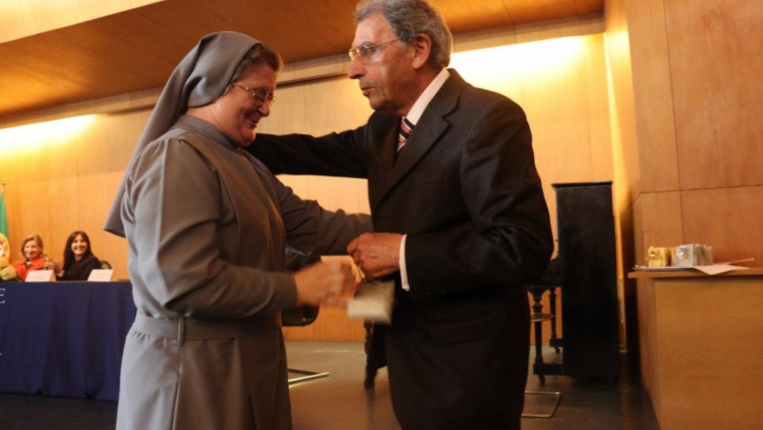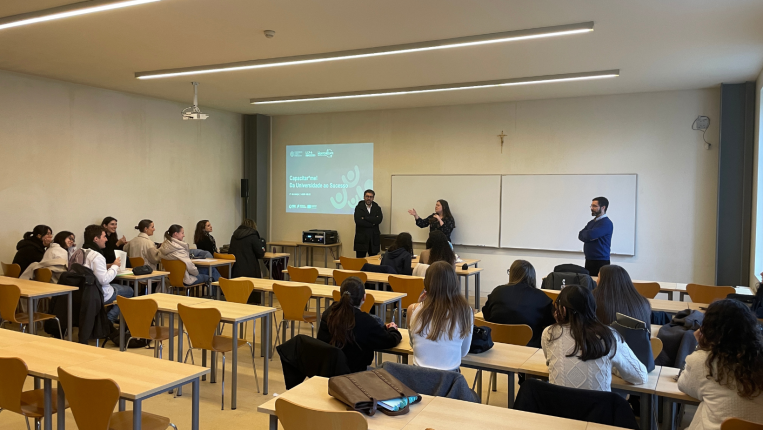
150 years of the Asilo de S.José were marked yesterday with the president of the board of directors advocating greater state funding for private social solidarity institutions.
Yesterday, the chairman of the board of Asilo de S. José denounced the contribution of public authorities to private social solidarity institutions (IPSS) as ‘manifestly insufficient.’ At the solemn session marking the 175th anniversary of the institution that provides support to the elderly, José Luís Tavares Cunha noted that ‘the sum of the contributions from Social Security and users is manifestly insufficient,’ as it leaves more than 20% of the IPSS's financial needs uncovered.
In the presence of the Secretary of State for Social Action and Inclusion, Clara Marques Mendes, the president of the Asilo de S. José warned that in order to avoid a worsening of the IPSS' financial situation, it is necessary to “update the state contributions under the co-operation agreements to fair values”.
Speaking at the solemn session, held in the lecture theatre of the Faculty of Philosophy and Social Sciences of the Portuguese Catholic University, the president of the Asilo de S. José also noted that the increase in the longevity of the population has led to an increase in the number of elderly people with pathologies, which has transformed the IPSS into ‘authentic long-term care units’, without them having the appropriate staff and equipment.
The Secretary of State for Social Action and Inclusion replied that the government is ‘changing the way it reimburses’ the IPSS, recalling the recent signing of the co-operation commitment for the 2025-2026 biennium.
Clara Marques Mendes pointed out that the social economy sector and the government had agreed on the cost of each social response, and had managed to neutralise the impact of the increase in the national minimum wage and inflation on the co-payments.
The minister reaffirmed her commitment to achieving a 50% share of the cost of the social responses contracted with IPPS. According to the Secretary of State, it will be possible to approve the Social Sector Financing Law later this year.
Yesterday, the management of the Asilo de S.José honoured employees who had completed 15 and 25 years of service to the institution. The 150th anniversary was also marked with the laying of wreaths next to the busts of the founder, Fernando Oliveira Guimarães, the former president Jaime Carvalho de Lemos, and the founder of the Congregation of the Franciscan Hospitaller Sisters of the Immaculate Conception, Sister Maria Clara.
New answers to the great challenge of longevity
Braga City Council councillor João Rodrigues argued yesterday, at the session commemorating the 150th anniversary of the Asilo de S. José, for society and the public authorities to pay more attention to the growing role of informal carers in an ageing population and increasing longevity.
‘Many people are not aware that they are informal carers with access and the right to certain services and support,’ said the mayor.
According to João Rodrigues, ‘the role of informal carers will become increasingly important’. On this subject, the Secretary of State for Social Action and Inclusion, Clara Marques Mendes, pointed out that a legislative amendment was recently approved that extends the status of informal carer to non-family members and that the creation of specific reception places in IPSS is planned to guarantee the right to rest for informal carers. Clara Marques Mendes said that, faced with the challenge of longevity, home care services will have to be improved with new features, as they currently do not respond adequately to realities such as the isolation of the elderly, and that the social sector must be called upon to intervene in the area of long-term care.
In this regard, he pointed to the eight pilot projects that will be launched to test this new response.





